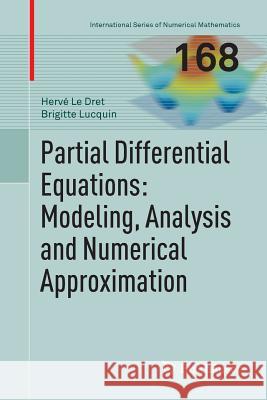Partial Differential Equations: Modeling, Analysis and Numerical Approximation » książka
topmenu
Partial Differential Equations: Modeling, Analysis and Numerical Approximation
ISBN-13: 9783319800660 / Angielski / Miękka / 2018 / 395 str.
Kategorie:
Kategorie BISAC:
Wydawca:
Birkhauser
Seria wydawnicza:
Język:
Angielski
ISBN-13:
9783319800660
Rok wydania:
2018
Wydanie:
Softcover Repri
Ilość stron:
395
Waga:
0.56 kg
Wymiary:
23.39 x 15.6 x 2.13
Oprawa:
Miękka
Wolumenów:
01
Dodatkowe informacje:
Wydanie ilustrowane











